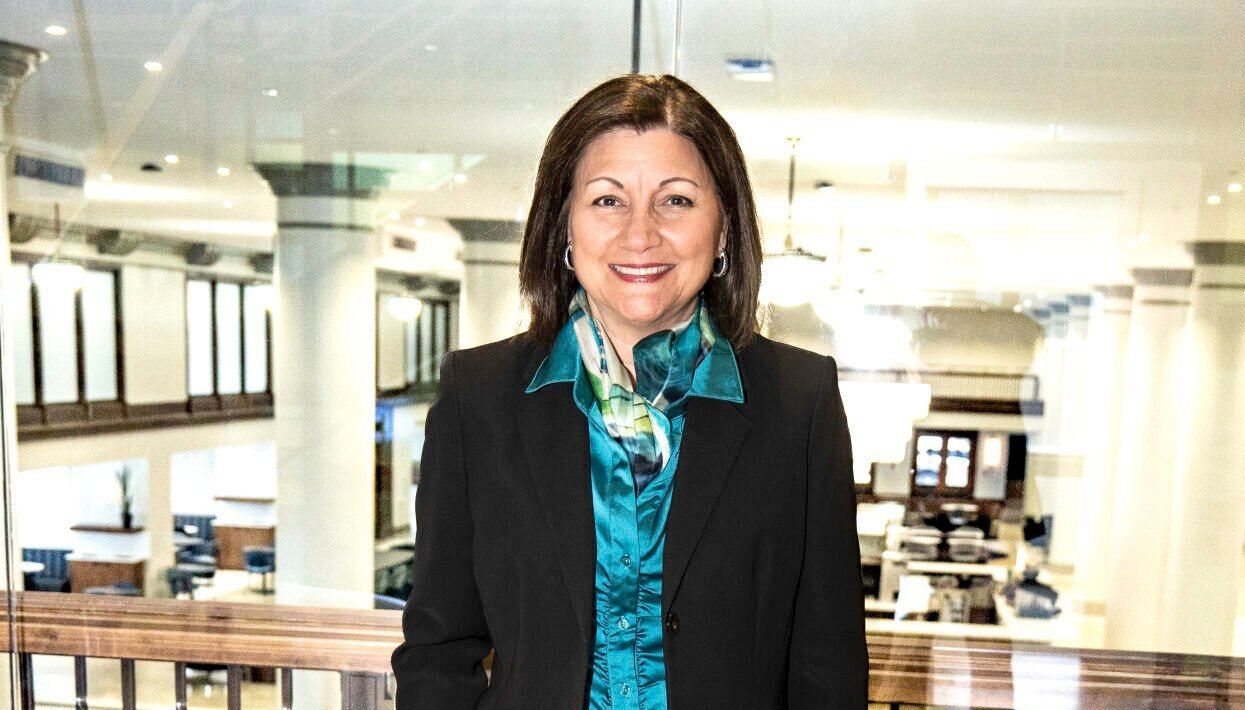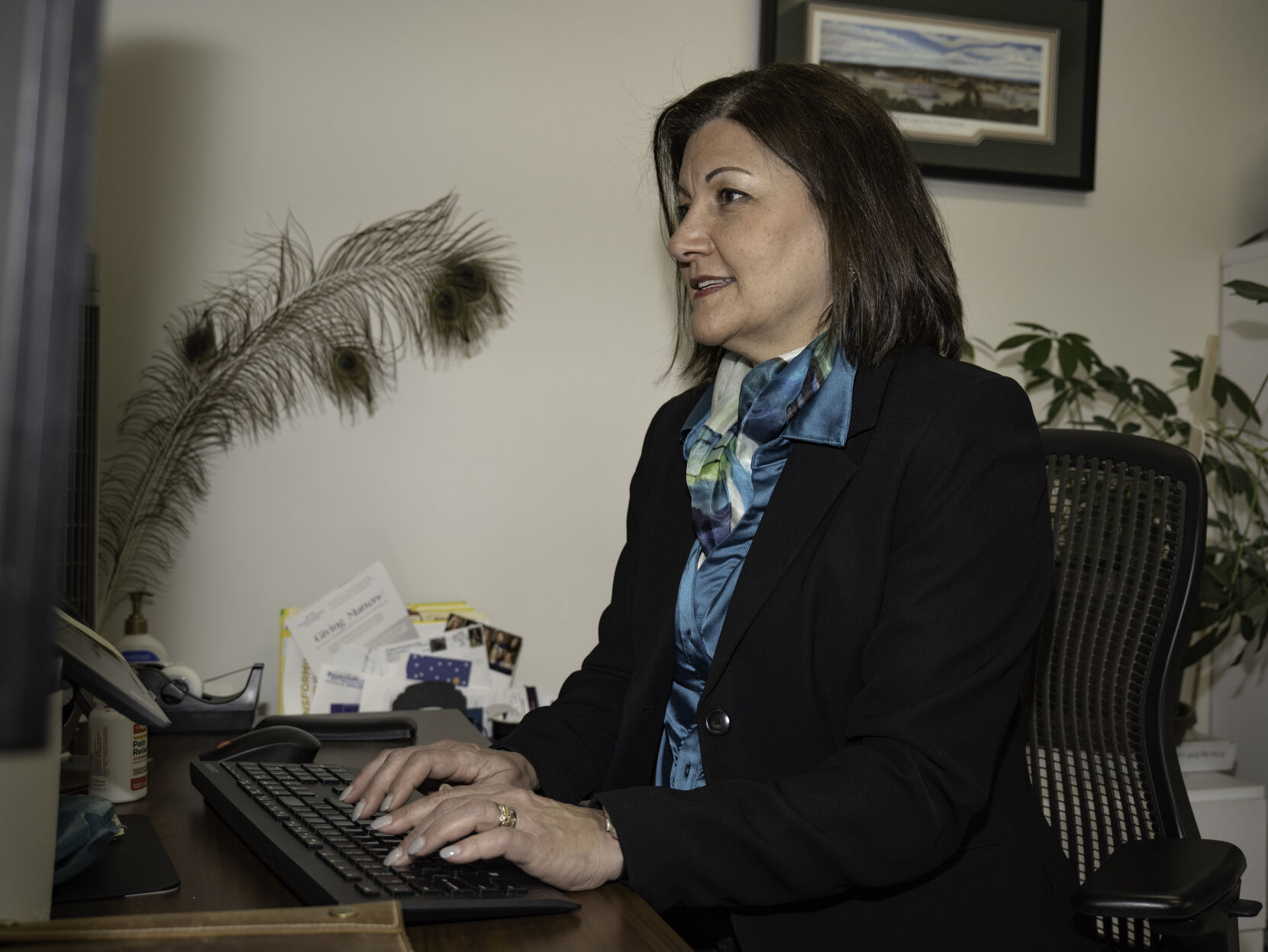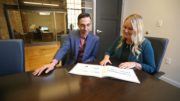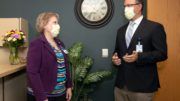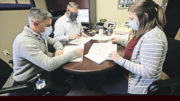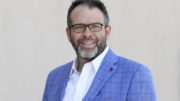Do you know someone with an interesting perspective. Is there someone in your organization who has an compelling story to tell? Let us know and they could be featured in a future edition of Faces in Business. Email tony.frenzel@thmedia.com and megan.gloss@
thmedia.com with your suggestions.
Editor’s note: The monthly BizTimes feature Meet a Local Leader is getting a face-lift starting next month. We’re broadening the scope to include more than just business leaders. Anyone with an interesting perspective, a strong story or a potent effect in their field could be featured in the new Faces in Business. Stay tuned for new questions, new faces and a new look starting next month.
Bobbi Earles is vice president of philanthropy and communications at Community Foundation of Greater Dubuque.
A former KWWL television reporter and Loras College graduate, Earles points to the people she’s met over the years as an important influence.
“Over the years, I have been fortunate to have opportunities to meet some incredible people, far too many to call out by name,” Earles said. “However, early in my career as a reporter, there was one young girl I interviewed who had cancer. She said something that has stuck with me and something I strive to live up to. When she was talking about her treatment she explained, ‘No one knows what will happen, so I’ve decided it’s not how long I live — but how I live my life.’ She was wise beyond her years and taught me an important lesson.”
Earles’ family includes two daughters, a son-in-law, her husband and a “fun-loving” aussie-doodle. She loves to spend time outdoors and also enjoys cooking.
“My family is my everything,” she said. “No matter the season, I love to be outside. Whether it is taking our dog for a walk, snow shoeing or biking. Cooking is something I find to be very therapeutic. I have witnessed when you take time to share food, you also engage in great conversation and that is good for the soul.”
Can you name a person who has had a tremendous impact on you as a leader?
I believe there are a number of people who influence you on a daily basis. For me it has been my parents, my siblings, my husband, my children — I also recognize there are those incredible individuals you meet along the way that leave a lasting impression.
When I was in high school, my speech teacher, Mrs. Tilton, was one of those people. Everyone should have a Mrs. Tilton as a teacher at one point in their life. She had an incredible way of getting people involved with speech and drama. I didn’t realize it at the time, but Mrs. Tilton was a master at getting you to try things outside your comfort zone. She challenged us to do more than we thought we could and isn’t that what good leaders do?
After college, Grant Price, the news director at KWWL, hired me as a cub reporter, photographer and producer. He was just a few years from retirement but approached his job like someone half his age.
What I always appreciated was Grant never placed boundaries or barriers in my way. He outlined expectations and then trusted you to deliver. He treated everyone with respect, and we found ourselves working to earn his in return. There were three things Grant expected from everyone: Be succinct in telling the story, be fair and balanced in your reporting and be on time. You had to hit your deadline.
What are the most important decisions you make as a leader of your organization? It’s not the decisions I make, it’s the conversations I have with others. In my role at the Community Foundation, I share the needs and opportunities within our community with donors who want to make a difference. When you partner passion with a philanthropic heart, everyone wins. At the end of the day, our goal is to be a resource to donors, nonprofits, professional advisers, businesses and anyone who is interested in building a vibrant and inclusive region.
As an organization gets larger, there can be a tendency for the “institution” to dampen the “inspiration.” How do you keep this from happening? Creating a culture where others want to be should be the goal of every employer. You can start off your day by looking at your work as a challenge or you can champion it and recognize its impact within the organization. I am surrounded with individuals who believe in our mission and each plays a role in sharing our purpose with others. My inspiration comes from the people we serve and the impact we have.
Which is more important to your organization — mission, core values or vision? Our mission is to “Strengthen communities and inspire giving” — it is at the core of everything we do and feeds into our values and vision, ”to create a vibrant and inclusive region with resources and opportunities for all.”
What is one characteristic that you believe every leader should possess? Listening. It is an overlooked skill that is so instrumental in doing your job well, whether you are leading a team, a project or flying solo. By talking less and listening more, you have the opportunity to learn and understand, which can lead to a successful outcome.
What advice do you have for future leaders? Be open to change. Own your mistakes, they will make you stronger. Support your team and help them advance. Pause to celebrate your successes but make sure you’re looking forward more than you’re looking back. Be the example for others to follow.
What lessons can leaders take away from the pandemic? Work culture has become more important than ever for both employees and employers. Assessing the needs of your organization, building a plan and outlining expectations allows everyone to feel good and have an understanding of how their work brings value to the organization.
What are two or three of the best things about being a leader? Collaborating with a creative and committed team. It is exciting to work with individuals who are passionate about the work they do and the impact they can have in our community. I find joy in seeing people grow beyond their potential. We often place limits on ourselves and when you break through that barrier, you begin to see your value you bring to your organization and your community.


